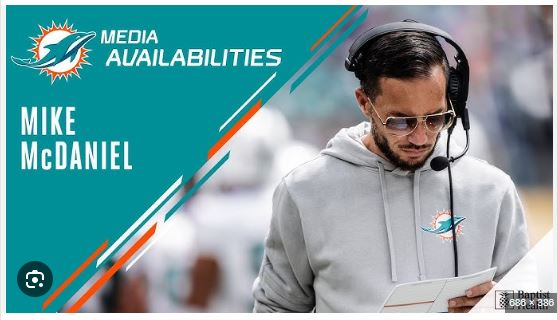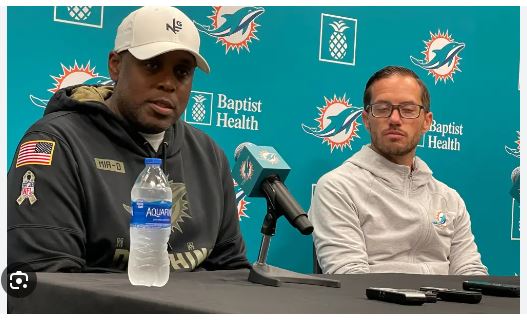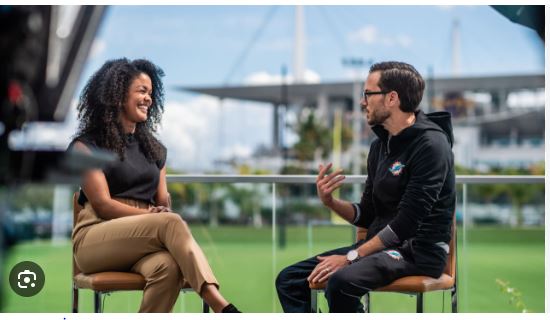Three-time Pro Bowl running back, two-time Super Bowl champion, bright and gregarious, and perhaps the most outspoken supporter of the unbeaten Dolphins in any debate about the greatest team in NFL history, Eugene “Mercury” Morris passed away on Saturday night at the age of 77, according to a social media post made by his son Troy-Jeffery Morris on Sunday morning. His death was verified by the Dolphins.
Morris played for the Dolphins from 1969 to 1975. He occasionally disagreed with coach Don Shula, but he was a constant source of speed, elusiveness, and dependable output for one of the league’s top teams and most feared running games. Eugene “Mercury” Morris, a beloved member of the NFL family and a legendary running back for the Miami Dolphins, passed away at the age of 77, his family said in a statement.
Outside of the field, Mercury was a devoted father, a devoted brother, a devoted friend, and a community leader. He had a profound impact on many people’s lives during his stay in Miami, therefore his influence went well beyond football. During the Dolphins’ undefeated ’72 season, Morris carried 190 times for 1,000 yards (5.3 average) and a league-high 12 touchdowns. He created an excellent running back trio with Jim Kiick and Larry Csonka. Csonka posted on the social media site X on Sunday, saying, “It’s a very sad day for me and our Dolphins family.”
Morris caught 46 catches for 491 yards and carried 754 times for 3,877 yards (5.1 per carry) and 29 touchdowns during his seven years with the Dolphins. During his 111 career kickoff returns, he averaged 26.5 yards and scored three touchdowns, making him one of the NFL’s most captivating special teams players. In 1976, he played with the San Diego Chargers for just one season before retiring. Just behind Jim Brown’s 5.2 career per carry average, he shares ninth place in the history of the NFL with Aaron Jones.
Morris was found guilty of cocaine trafficking in 1982 and given a 20-year prison sentence, of which 15 years were required. The Florida Supreme Court reversed his conviction in 1986 when he provided evidence to support his entrapment claim, but it was mistakenly dismissed as hearsay. Morris consented to a plea deal with the prosecutor, entering a no contest plea to charges of cocaine conspiracy, and was given a new trial. After three and a half years in prison, he was released in 1986. Later, he discussed his incarceration in a public service announcement against cocaine.
He went on to become a motivational speaker in the years that followed, and his notoriety only increased as he appeared in a Reebok “Perfectville” commercial and was the team’s most vocal supporter of the 1972 legacy. When someone inquired about another team “surpassing” the Dolphins’ record, he firmly resisted with a charming smile and a commanding voice. Morris stated in a 2022 interview with the Miami Herald that he doesn’t think the ’72 squad has been treated disrespectfully, but he finds it offensive when people imply that the Dolphins’ perfect record may be surpassed.
That’s just not feasible, he continued, and he doesn’t put up with idiots who think it could be. “An ESPN guy approached me prior to the Super Bowl matchup with the Giants when the Patriots went 18-0 and then 18-1 [in the 2007 season] and said, ‘If the Patriots go 19-0, they’re going to be better than you.'” “How?” I asked. “How many games do you play?” he asked. “When were you born?” I inquired. “1972,” he said. “You were [expletive] on yourself back then and you are now, so don’t say another [expletive] word to me about the ’72 team,” I added. Asking what the second-largest canyon is is analogous to that. Besting 17-0 is not possible.
Morris claimed that because there was so much drama around the Perfectville commercial, it was his favorite post-career job. I picked every guy in it, and they picked me. “Who can break the Dolphins’ record?” was the central question. No one can, in fact. Morris, Kiick, Garo Yepremian, and Hall of Fame guard Larry Little took pictures in front of a fictitious road sign that read, “Welcome To Perfectville, Pop. 1, Founded 1972,” two days before the Patriots lost to the Giants in the February 2008 Super Bowl in Arizona, attempting (and failing) to complete a perfect season. Commercials were produced to either establish Miami as the sole flawless team in NFL history or to welcome New England as a second resident to “Perfectville.”
With his initial remarks to “tell me when [the undefeated Patriots] are on my block and ready to move in,” Morris provided Reebok with the idea for the advertisement. Morris, who was born in Pittsburgh, went to Avonworth High School in the city’s northwest suburbs. From 1965 to 1969, he was an All American at West Texas State University (now West Texas A&M University). In 1967, he broke a college record for rushing yards in a game (340) and finished second in the country in rushing yards (1,274), behind O.J. Simpson of Southern California. He was chosen by the Dolphins in the third round of the 1969 AFL-NFL Common Draft.




